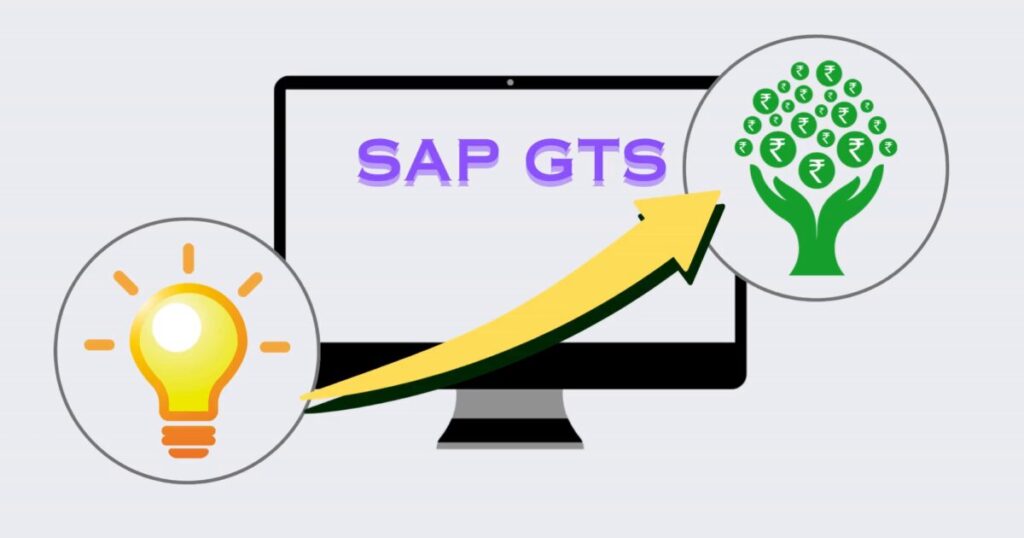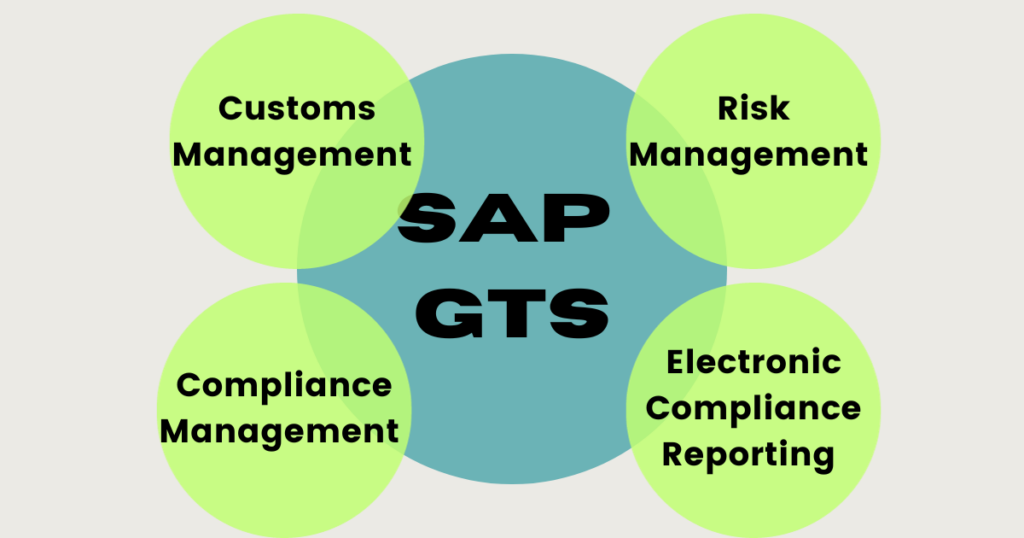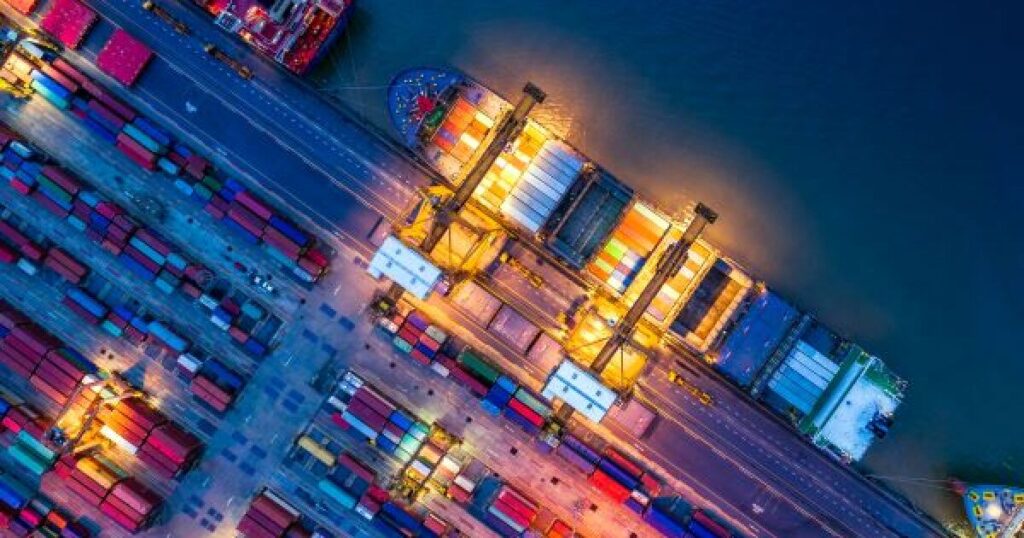Multinational businesses and organizations that conduct international business frequently utilize SAP GTS or SAP Global Trade Services. As the industry leader in enterprise application software, SAP builds networks of intelligent organizations that offer sustainability, resilience, and transparency throughout supply chains, assisting businesses of all sizes and sectors to operate more efficiently.
But what exactly is SAP GTS? Let’s know what does it stand for and what exactly does it do.
Introduction to SAP GTS

SAP (Systems, Applications, and Products in Data Processing) offers a software program called SAP Global Trade Services to assist companies in organizing and managing their international trade activities. It is intended to help businesses manage and optimize a range of aspects of international trade and compliance, such as trade financing, import and export procedures, and customs laws. SAP Global Trade Services (GTS) assists you in managing your partners, automating your international trade procedures, keeping an eye on continuing changes to international legal requirements, and making sure your business complies with them.
With SAP GTS, you can effectively handle your international trade procedures and make an impression on the competition throughout the world. By ensuring that you adhere to regulatory requirements, the solution makes it easier to manage overseas trade and customs, including electronic communication with customs authorities. It lowers the danger to your finances and guarantees that you will always take advantage of any benefits and savings offered by international trade.
Components
These are some of the automated functions that SAP GTS enables. It is made up of several components that can be licensed separately or as a whole bundle:
- Export management to handle the majority of trade laws and localization for over 25 nations.
- Import management to expedite procedures via duty computation, importer security filing, and more.
- Favorable and free trade agreements to control vendor and customer declarations, lower duty, and tax payments.

1. Compliance Management
One of the most important requirements for effective international trading activities is compliance management, which assists you in streamlining your extended logistics chain and automating the challenging procedures associated with international trade compliance difficulties. This part makes sure that laws, regulations, and customs requirements related to international trade are followed. By doing this, the possibility of incurring penalties and fines is reduced.

Through global sourcing and selling strategies, your company can significantly increase revenues, and because of the increased customer satisfaction, your organization’s competitiveness can be enhanced. It assists businesses in managing licenses, permits, and certifications, conducting trade document management, screening business partners against restricted party lists, and staying current with new legislation.
- Your logistical processes, such as those in sales and distribution, materials management, customer relationship management, and financial accounting, can all be fully integrated with SAP GTS.
- You have to give the customs authorities a unique way to identify your products while engaging in international commerce operations.
- You are required to provide the import or export control classification numbers of the goods you are importing or exporting to the customs authorities during the customs processing procedure.
Real-time compliance inspections are made simpler by integrating SAP GTS with SAP ERP. We can comply with the requirements set forth by different nations thanks to this integration. With SAP Global Trade Services, importing and exporting procedures may be screened. You can substantially minimize liabilities and penalties.
2. Customs Management
Customs procedures like international trade zones, refinements, customs warehouses, intrastate, etc. can be made simpler with SAP GTS. Additionally, it facilitates specialized customs processes such as temporary importation, FTZ, inward processing, customs warehousing, and outward processing. Accurate compliance with customs laws is also beneficial. Additionally, SAP GTS enables you to handle the necessary paperwork with customs officials for efficient transactions involving products. It significantly expedites the shipping of products.

The technology assists your business in standardizing and automating import and export procedures with customs officials. This lets you import and export items more quickly and lowers the overall cost of handling customs-related transactions. You may guarantee compliance with process handling regulations and standardize discussions with authorities using automated handling and monitoring of cross-border and control-relevant goods traffic. This expedites and streamlines the administration and clearing of customs.
- The GTS system’s monitoring tools make it simple to keep track of every address that has been examined.
- The monitoring features allow an employee with the necessary authorizations to unlock papers that have been blocked and process them further.
- Screening for sanctioned parties on lists is initiated automatically by the GTS compliance check system.
- According to the legislative regulation, the system uses the export control classification number (ECCN), license categories, and determination sequence to determine whether export licenses are appropriate.
- Export laws should be implemented in order to verify export licenses, as they are dependent on the exporting nation.
- You can apply import/export control classification numbers to your products in the product master data by uploading them to the system using Compliance Management in SAP GTS. The classification tool will make this assignment process a lot easier for you.
3. Risk Management
You can reduce the financial risk connected to your international trade operations by using the risk management application areas found in SAP GTS. These application areas can be integrated into your regular foreign-trade process management workflows. Businesses can expand their market reach and diversify their clientele by lowering trade barriers, which helps lessen the danger of being dependent on just one market or their customer base. Additionally, this can lower the cost of taxes and customs charges for firms, increasing profit margins and lowering price volatility.

a. Preference Processing
Exporters can identify their commodities as eligible for preferential treatment and receive support in meeting all regulatory criteria for customs preferences by using Preference Processing in SAP GTS. The features of preference processing include the following:
- Handle long-term vendor declarations (LTVDs) based on vendors and LTVDs for customers.
- Preference computation using order-related BOPs for customizable items or preference agreements and preference models for standardized products with static BOPs
- Declare a product’s preference eligibility based on preference determination
b. Letter of Credit Processing
With a Letter of Credit, you may better monitor delivery dates and verify receipts for legal control purposes, as well as reduce the financial risks associated with international trading.
- Bank-issued letters of credit in SAP GTS are kept up to date in the letter of credit master.
- The header data of the letter of credit allows you to add all pertinent delivery and document info. In addition, administrative data, company codes, addresses, and numbers can be entered.
- You must issue a letter of credit to your import or export business partner if the system determines that they are relevant for Letter of Credit Processing.
4. Electronic Compliance Reporting
All organizations are required to follow industry-specific rules and guidelines. Breaking these rules could result in severe fines or, in the worst instance, the company closing down. SAP GTS compliance reports usually contain details about how customer and corporate data is handled, including how it is gathered, kept, regulated, and distributed both internally and outside. Ensuring compliance is a continuous process, and reporting needs change in tandem with standards. A lot of businesses employ compliance reporting solutions, which provide the reports required to satisfy different compliance organizations they interact with.

Let’s see why electronic compliance reporting is important in SAP GTS:
- Streamlines the gathering of data
- Determines and ranks the hazards
- offers corrective action strategies and
- produces the necessary documents automatically
You input the company’s information into the GTS system as the information provider in order to generate Intrastat declarations using Electronic Compliance Reporting (ECR). Apart from the general address information, the information provider’s data also includes the company’s identification information for the authorities. For an information provider, enter the basic parameters you want the system to use for Intrastat declarations, like the declaration currency and the declaration level you want to use to specify the authorities’ jurisdiction.
Conclusion
With the resources you need to engage in the updated systems and electronic communication channels utilized by governmental organizations and customs authorities, this solution facilitates your international commerce endeavors. By assisting you in avoiding the expensive delays and financial risks associated with imports and exports, GTS enables you to respond swiftly to global business possibilities. SAP GTS helps businesses handle a large number of business partners and a significant amount of documents in addition to automating trade operations and assisting in maintaining compliance with evolving legal restrictions.

